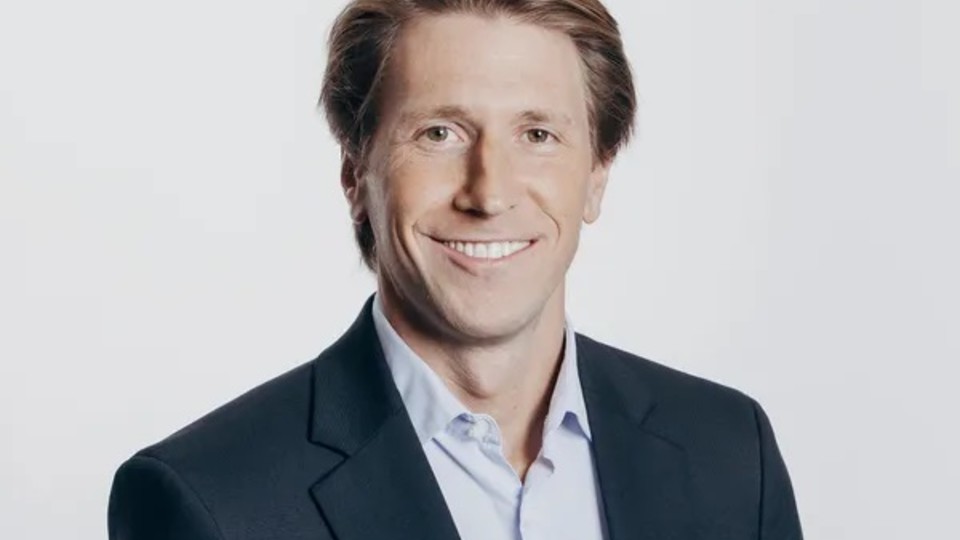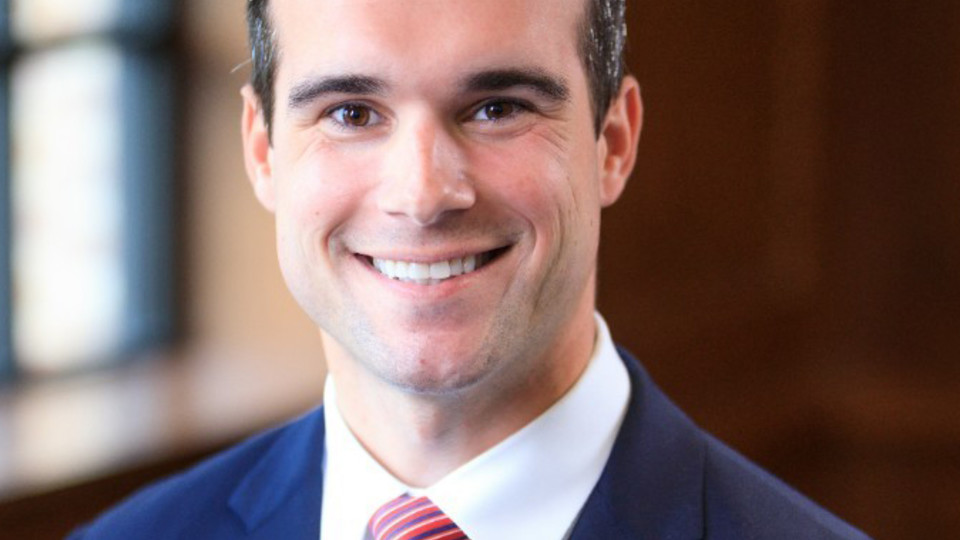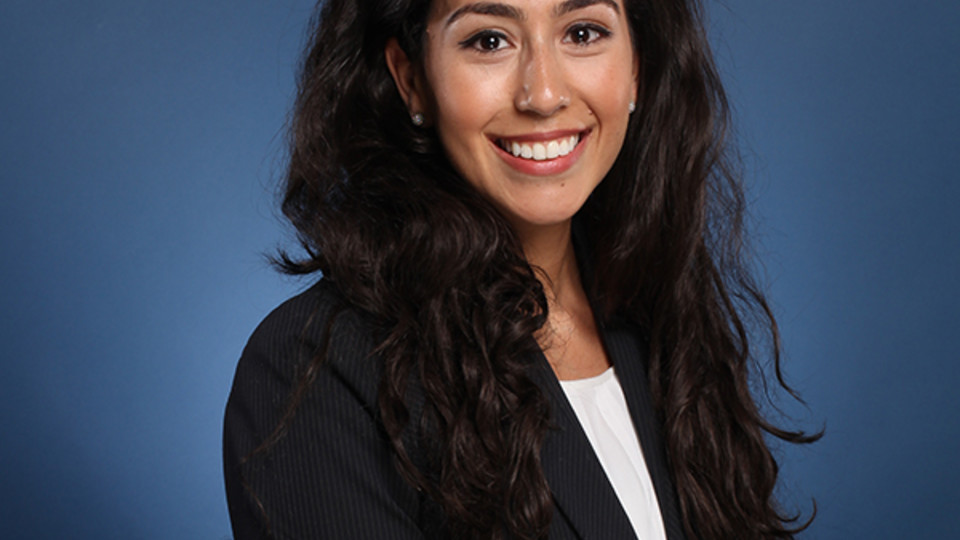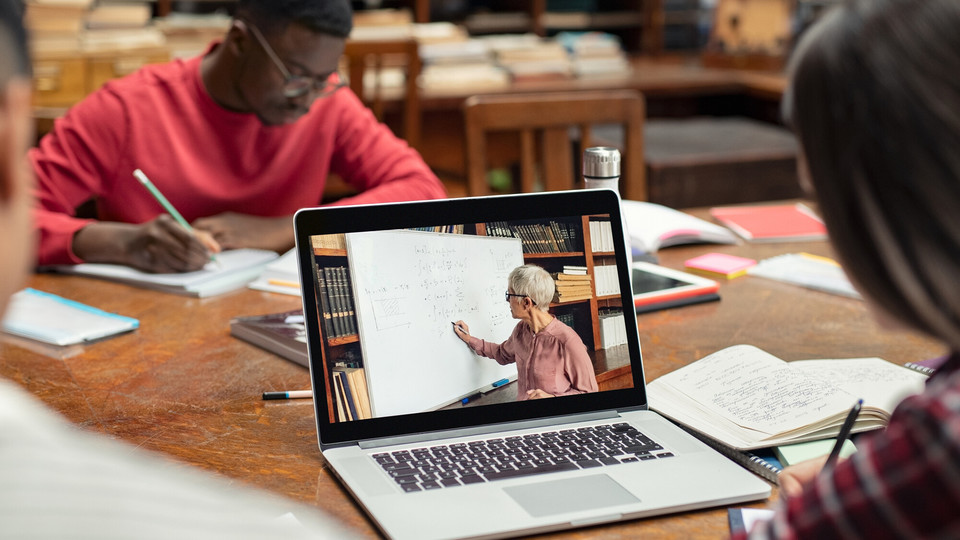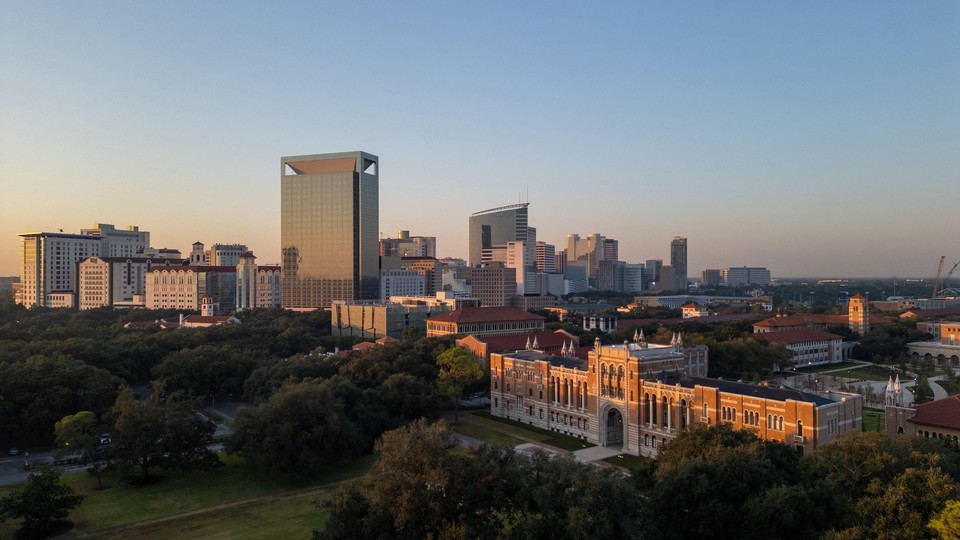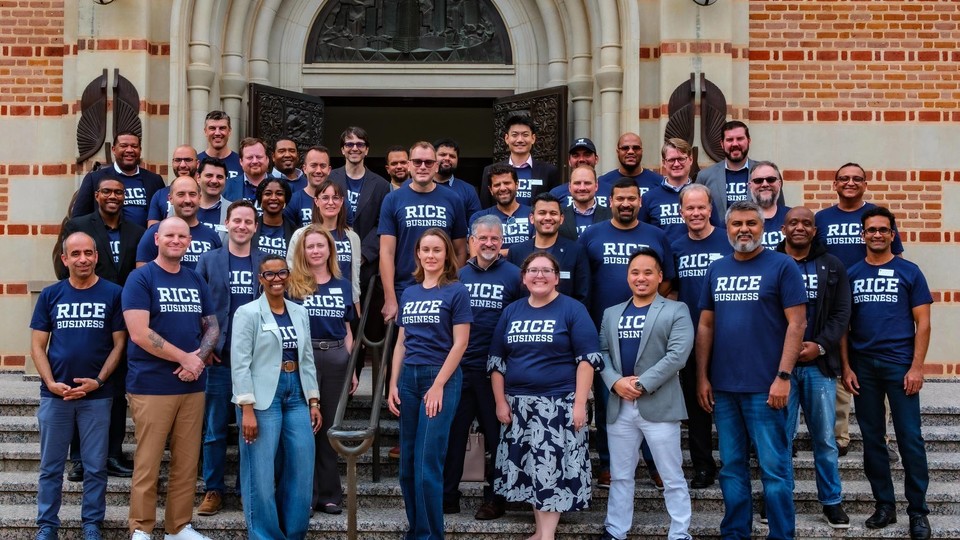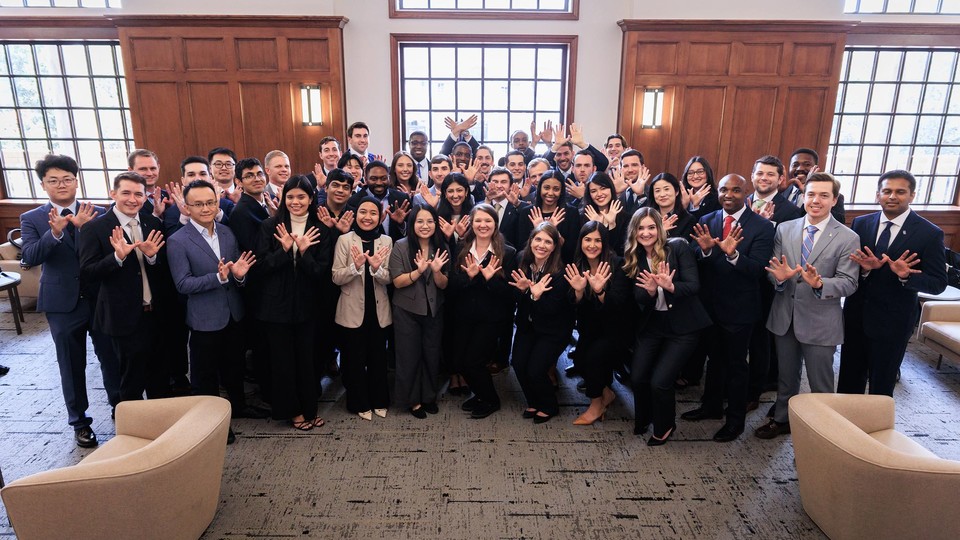AI in Science: A Hidden Threat to Research Integrity?
A study reveals that 13% of scientific articles show signs of AI, raising a debate about the integrity of research. Rice Business professor Kathleen Perley says that AI can play a decisive role in democratizing access to academic research, especially for non-English-speaking researchers or those suffering from learning disabilities.
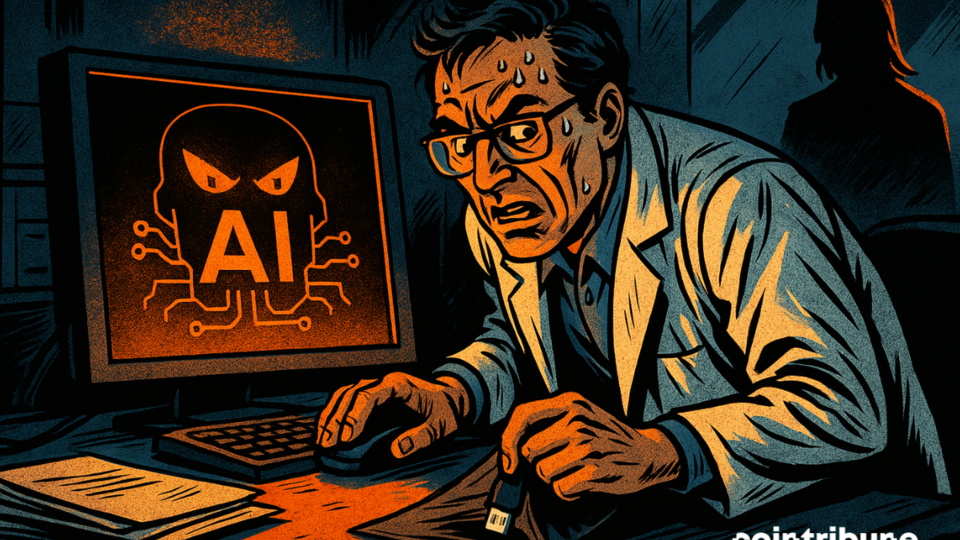
2025 Best & Brightest Online MBA: Ramon Marquez
"Rice was the only school I seriously considered. As a Houstonian, I wanted to root myself locally while still learning from one of the best programs in the country. Rice’s reputation, combined with its values and community, made it the clear choice."
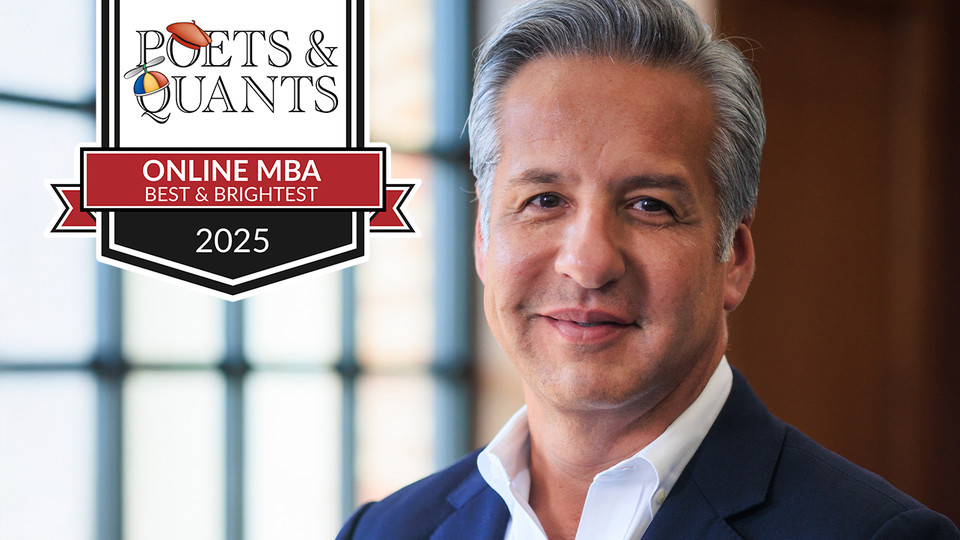
How a Disney Skater Became a Startup Founder feat. Becky Jackson ’25
Season 5, Episode 11
Becky chats about traveling the world with Disney on Ice and founding a business that works with local law enforcement and veterans to make private security more accessible.
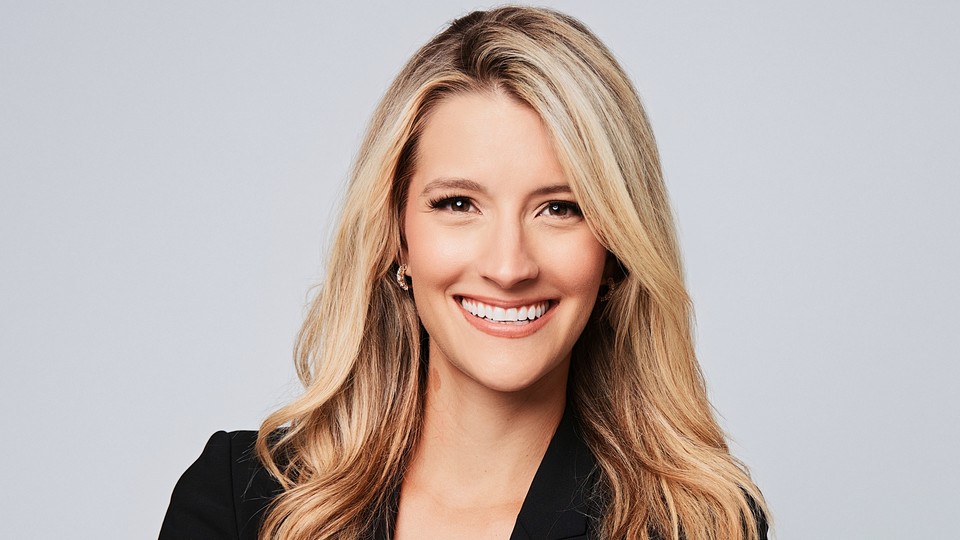
Owl Have You Know
Season 5, Episode 11
From being the first figure skater to play Elsa in Disney On Ice’s Frozen to charting a new path in the private security industry, Becky Jackson '25 knows what it takes to build something from the ground up.
Before earning an MBA at Rice and becoming an entrepreneur, Becky had an illustrious figure skating career with Team USA and Disney. Now, she’s transforming how security services are booked with her company ONGUARD.
Becky joins co-host Brian Jackson ’21 to chat about her journey — from discovering her passion for skating at age seven and traveling the world with Disney on Ice to founding a business that works with local law enforcement and veterans to make private security more accessible.
Subscribe to Owl Have You Know on Apple Podcasts, Spotify, Youtube or wherever you find your favorite podcasts.
Episode Transcript
-
[00:00]Brian Jackson: Welcome to Owl Have You Know, a podcast from Rice Business. This episode is part of our Flight Path series, where guests share their career journeys and stories of the Rice connections that got them where they are.
Becky Jackson, a 2025 graduate, is the founder and CEO of ONGUARD, a Houston-based venture, modernizing how people connect with commission law enforcement for private security. Before launching her startup, she was a professional figure skater who traveled around the world as the first ever Elsa in the Disney on Ice production of Frozen, performing in 10 countries in 94 cities. Her journey began in competitive figure skating, where she represented team USA and later served as vice chair of U.S. Figure Skating's Athlete Advisory Committee.
That same drive led her to entrepreneurship and to Rice Business, where she found the tools and community to launch ONGUARD. Earlier this year, she stepped onto a new kind of stage, pitching ONGUARD as a finalist in the Veterans Business Battle, drawing on the same poise and presence she once brought to arenas around the world.
Hi, Becky. Thank you so much for joining us today on Owl Have You Know.
[01:16]Becky Jackson: Hi, Brian. Thank you so much for having me.
[01:19]Brian Jackson: It's not often I get a counterparty. Well, I shouldn't say a counterparty, it sounds like we're litigating. But someone with the same last name. So, we're the Jacksons.
[01:27]Becky Jackson: The Jacksons, yeah, distant cousins, a lot of us, Jacksons.
[01:31]Brian Jackson: Well, you're the more accomplished cousin, which, really, speaking of, I was looking at your bio, looking at your background, and what really stuck with me is you started figure skating when you were seven. And I started thinking about the things that I started when I was seven, and how many of them did I actually stick with? I no longer collect Pokemon. I, you know, no longer rollerblade, any of those things that I started. So, how, as a 7-year-old, did you get pulled into figure skating? And how did that really become this passion for you?
[02:06]Becky Jackson: Oh, yeah. I mean, figure skating is such a defining, I think, part of my life. And I get the question so often of, yeah, I grew up in Houston, I was born in Houston, so, “How did you get into skating?” And it was actually a friend's birthday party. And I got to go. And that was my very first time on the ice, lacing a pair of skates. And I just immediately fell in love with the feeling of being on the ice. And from then on out, it was, sort of, I, kind of, remember begging my parents to go on the weekends. And there would be things like, you know, “If I clean my room, like, can I go ice skating?”
And so, the passion really started as a young age of just loving the feeling of being on the ice. And I grew up with an identical twin sister. So, it was something that we got to share together. And then that, kind of, going once a week, turned into a couple times a week, and turned into a group lesson that eventually really took off. And I, kind of, early on knew that this was something that I wanted to stick with.
And I think I just love the balance of both the athleticism of the sport, as well as the, sort of, creative ability to, kind of, dance and express. And so, I think I have always been a very goal-oriented person. There's always another challenging new elements you can learn. You can always be faster, stronger. And so, figure skating has taught me so much, you know, about myself, as well as being able to transfer a lot of those lessons to business as well.
[03:28]Brian Jackson: I mean, the jump from, “This is something I love,” to becoming an elite athlete, you know, representing Team USA and then going on into, really, a professional side of Disney on Ice. It's an incredible transition. But as it's all happening, is this a part of the goal? Is this the plan? Or are these opportunities coming as you're just getting better?
[03:50]Becky Jackson: Yeah. Early on, you know, as a kid, I grew up watching the Olympics. And so, that has always been the North Star, competing in the Olympics. And I had the great honor in high school, I made the U.S. team. And so, that meant getting to travel around the world, competing.
And so, that really changes the game. Like, when you go from an independent athlete to a U.S. Team athlete, you suddenly, you know, representing your country, which, of course, is a huge honor, but it also carries a pressure behind it, of you're really, kind of, paving the way for future athletes and the outcome that you achieve in, maybe, an international event may dictate the placement and opportunities of future skaters.
And so, it's, like, you, kind of, carry this additional responsibility of performing at your best. And so, I think it was always a part of the plan. What wasn't a part of the plan was later becoming a professional figure skater, you know, got to do three years with Disney on Ice, that opportunity was really the chance of a lifetime that came to me, actually, at a time when I was in college and had actually, sort of, hung up my skates. And it was a time, I guess, around junior year, was at the University of Michigan, getting my undergraduate degree, and I was facing, kind of, some injuries at the time and thought, “You know what? While I hadn't achieved that Olympic dream, I had the opportunity to compete in the Olympic trials.” And unfortunately, the injuries I was battling at that time, I wasn't able to be at the peak performance. And so, I, kind of, made the choice to step away from the sport and pursue my interest in business.
And it was actually during that time that I got reached out to by the global casting director of Disney on Ice with, you know, the chance of a lifetime to get to play the part of Elsa and this brand-new top secret project called Frozen. And, you know, this was 2014. So, the movie had just barely come out. And I'm like, of course, I know Frozen. And when I first got the email, I thought, “Okay, surely, this is fake,” until I looked into it. But sure enough, you know, a few conference calls later and, you know, it was something that I couldn't turn down. It was an incredible opportunity to do that for three years.
[06:02]Brian Jackson: Well, do you still love the music after three years of hearing it? Because from my experience with the kids and the play mics where they're belting Let It Go, it's lost its luster.
[06:13]Becky Jackson: Yeah, I did over 1,200 shows. And, you know, people ask, “Are you just sick of it?” But I think, when you've done it that many times, and anyone who's done live theater knows that every time is different. You know, always, there's something that's a little bit… a different city or a different arena or a different audience. And so, it does, kind of, feel new every time. And the music, especially, Let It Go, which is Elsa's big solo in the show, but that music, to me, I just hear, and it really sounds like home. Not to be cliche, but it was, kind of, like, a warm feeling inside. So, no, I'm not sick of it, yet.
[06:47]Brian Jackson: Well, and you got to trave tol, what, 10 different countries, 94 cities? I mean, I can't do math well, but over a three-year period, that's a lot of traveling.
[06:56]Becky Jackson: It's a lot of traveling. And I love to travel. And so, that probably was one of the best parts. The way that our structure works is you typically, kind of, have your opening night on a Wednesday and you'd have shows all the way through, maybe, till Sunday doing, you know, anywhere from 12 to 14 shows a week. But you'd always get, like, a one or two days off, maybe Monday or Tuesday. And that was my chance to just get out or get with a group of friends, figure out, you know, what is the local landmark or, you know, local coffee shops. That was always a really special part, especially when we were international. I had a chance to do 10 countries in Europe, and that made it fun. It was exhausting, but I think I really wanted to make the most of that time.
[07:39]Brian Jackson: So, of all the places you've been and you had to pick one to go back to, which is it?
[07:44]Becky Jackson: Oh, it's tough. We did 94 cities in the U.S. And that really gave me a unique perspective of getting to see different parts of the country. But that is the thing, is touring internationally and, you know, being younger. And I'd always thought, “Maybe I'll land in New York City or San Francisco or Boston or one of these, you know, amazing cities.” But the more I traveled, the more I loved and appreciated Houston and the more Texas felt like home. So, a great time to travel to those cities, but I think Houston definitely has my heart.
[08:18]Brian Jackson: I ended up here, too, so I understand the feeling. So, your junior year at University of Michigan, you take this opportunity, you go back and finish, and then it's the business world. And you're interviewing at different firms, thinking about the next path. What does that look like? What type of job do you think is going to fulfill you based on, kind of, this past experience?
[08:41]Becky Jackson: Yeah. It's a great question because it's something that was challenging because, to have such a dream job, really, right out of college to get to be also at Disney, it brought together, you know, not only, you know, what are my skills? And what do I love doing? What is my passion? And what is… you know, filling an important need. And so, I feel like it was this convergence of, of all of these things in my life, this career of skating and love of Disney and storytelling. And so, it was really challenging to think, what could be as fulfilling as that? Or, you know, what is next?
And so, it definitely was difficult to think about that. And one thing I knew for sure is I wanted to work in some kind of dynamic environment. I had come from a tour that was one city after the next, and it was traveling and meeting new people and new challenges every week.
And so, that's why I landed in the world of consulting. I thought, “Oh, great! Like, traveling every week, new challenges, a lot of ambiguity.” And so, I thought, “That's the thing for me.” Most of my very first, kind of, launch into, I guess, the business world or corporate world was, interviewed with a lot of different firms, landed at Accenture in the Houston office, which was such an incredible place to land and, you know, learn, especially coming off of the whole experience with Disney.
But yeah, I think it, kind of, checked all those boxes. If I knew I wanted to be with other people that were working hard and, you know, kind of, wanted that challenge. And so, I think, in the back of my mind, I always knew, someday, I want to, kind of, explore starting my own business or working with startups. And I thought consulting was the best way to learn the most about businesses. And what are the types of challenges that businesses face?
[10:32]Brian Jackson: And your focus at Accenture was with M&A, right?
[10:35]Becky Jackson: Yeah, a little bit. I also worked on the organizational side, kind of, organizational design, workforce transformation. So, really focused on people and, kind of, maybe, like, the right restructuring that would happen post M&A. And so, kind of, looked at the different enablers post M&A. Maybe that's technology or people and different processes. And so, it, kind of, gave me this idea of designing a business, maybe not from scratch, but, kind of, looking at, what's the goal, and how do we orient the business towards that?
[11:06]Brian Jackson: So, you're just collecting tidbits of knowledge here and there from each opportunity, leveraging your background, and then preparing for the next, which ultimately is a combination of business school and then entrepreneurship. So, seven years at Accenture, and then you look for a Rice MBA. Would love to know, what was that motivation? What was driving you there?
[11:31]Becky Jackson: Yeah. Ended up being about six, or I guess just over six years at Accenture, and then the MBA was always a professional and personal goal of mine. And it was really… My husband, Ken Jackson, is also a Rice Business alum. He graduated in 2023. And he was probably my biggest advocate in knowing it. I always wanted to pursue an MBA, and me getting to see him go through the Rice Business program really validated that, “Okay, this is absolutely something that I'd love to do and really need to do.”
So, yeah, I also, kind of, looking at my skills and my strengths within consulting, and weaknesses, I started to realize, somewhere, I wanted to build up skills, some of my technical skills, like the accounting, the finance, the data analysis.
[12:16]Brian Jackson: The fun stuff.
[12:18]Becky Jackson: The fun stuff. That I actually really enjoyed data analysis. Had a really excellent professor at Rice. So, I absolutely felt like I built, right off the bat, you know, like, in that first year, you hit it hard, with rebuilding those technical skills, which was designed that way on purpose so that you can bring that rigor and lens to the electives that you take in the second year.
But yeah, I knew that, if I was going to be a business founder, leader, that I needed to be able to read financial statements and that something that I had, kind of, lost that skill or just hadn't really been able to flex that muscle in the role that I was in. And so, I was really happy that I was able to do that and challenge into being with, kind of, peers that also had a background in finance and accounting also helped just further build that muscle, reinforce that through conversations in class and outside of class.
[13:14]Brian Jackson: And so, in the midst of the program, an idea comes up, right? A light bulb sparks, and you're like, “Oh, I've seen this opportunity. I think I have the sufficient, you know, resources myself to do this and take it on.” Could you tell me about how that happened and, you know, this kind of realization?
[13:32]Becky Jackson: Yeah. So, the idea for ONGUARD and, really, the vision of making private security more accessible and more efficient, for me it was sparked back with my time with Disney on Ice. You know, I absolutely loved the performing and the storytelling and the skating, but it also really nerd out on a lot of the logistics behind the Disney magic. And a huge part of that was the security and the partnerships of public and private security partnerships, not just, you know, for general security, but for traffic control and crowd control and just making everything look and feel seamless, as it should.
And so, it always, kind of, sparked an idea in me ways to make that more efficient. You know, it was something that was… there was really no technology supporting that. And it was run on a lot of spreadsheets. And it's one of these, kind of, last remaining industries that still, kind of, very much word-of-mouth in the way that teams are sourced and put together city after city.
And so, something I always came back in my time at Accenture, we use technology to create solutions and efficiencies for businesses. And so, I, you know, realized there is a better way to do this. And in talking to different friends and connections I have, both in the law enforcement world, as well as veterans and armed forces, started to pull together a lot of the opportunities there.
And so, that's where ONGUARD was built and developed. While at Rice Business, I started as a first year with just this idea of creating this platform and this marketplace and left Rice with a revenue-generating business, a technology company. And I would never have had the confidence or the network or even the skills to do that, I think, without being a part of this program and also a huge portion of that support to the Lilie Lab, which is Rice's idea, innovation entrepreneurship center that has curriculum and programs and accelerators.
And so, I really dove head first into that, pretty much on day one of the MBA and, kind of, did everything that there is to do at entrepreneurship at Rice. Probably, some of my favorite memories from the MBA is the electives that I took, as well as I got to do the Summer Venture Studios program, which is their three-month summer accelerator.
[15:51]Brian Jackson: So, if you could walk me through ONGUARD, what does it look like as a customer? And what's the process like with working with you?
[15:59]Becky Jackson: Yeah. So, I'd say ONGUARD, when we first launched, we were a digital marketplace that made it easier for customers, businesses, and individuals to hire off-duty law enforcement security. And what people may not know is that millions of people, even in Houston alone, rely on services from off-duty police officers, whether that's, you know, a church or a place of worship on the weekend, helping with traffic control, or security at a wedding, things like that. Just millions of people really rely on this huge marketplace that's taking place, you know, every single day. However, the booking process for that is really opaque and unclear. People really don't know, “How do I get the non-emergency line? Do I pick up the phone? Do I call into these departments that are, you know, extremely overloaded and heavy administrative process?”
And so, what we did is we worked with these different departments and created a seamless booking experience. We had an app on the App Store where, you know, whether it is a business or just an individual looking to hire private security service could go in and place their request. And just in a few clicks, we could look at, you know, “Okay, where is this location in the venue?” And we could pair them with that local office and be able to create that booking seamlessly.
And so, we really worked with departments to automate the workflow and the approval process for them. And so, we really wanted to also make sure that we were offering a really strong benefit to those departments. You know, how can we automate a lot of their policy in compliance and really save them hours of time. And so, as we went and had a lot of early success with the event planners and, like, wedding planners who were like, “Oh, this is great. You know, I used to have to pick up the phone and go through my Rolodex. And now, I can just… in a few clicks, it's done. I can pay in advance. I can have an invoice.”
So, we really listened to that customer segment and built a lot of the early features into the app. But I'd say, as we grew and start to take on more customers, we noticed that, really, the biggest opportunity was in serving the security providers. It was realizing that a lot of this, the staffing, and, kind of, just the administrative process of booking these, was what, kind of, where the pain point was. And so, a lot of this was being handled on literal sticky notes or signup sheets. And so, it was, kind of, this light bulb moment that, the more we talked to more departments and also started to then branch into local security companies as well, we realized that it was really in, kind of, small, local, armed and unarmed security providers that needed a better software layer and management platform.
And so, now, where we're going in the future with ONGUARD is still with the same vision of making private security more accessible and more efficient, but we are looking at acquiring and modernizing small security firms and building that into a national network. And so, kind of, moving more into that M&A acquisition space, you know, identifying initial targets. And so, what we're going to be able to do is really, just through modern technology, sort of, lift this out of the, sort of, spreadsheet world and be able to make these services really data-driven, be able to use and absorb local data sources and be able to predict and staff bookings, not just based on, you know, historic or gut feel, but really use data in a new way that maybe the government's done in the past but has it made its way into the private sector. And so, building, sort of, a much bigger vision now by, kind of, looking and addressing and identifying the right local security agencies to build up.
[19:45]Brian Jackson: So, the mission is staying the same, but what you've found along the journey with your touch points, your stakeholders, and getting feedback, like, there's a different way to approach it but accomplish the same mission.
[19:57]Becky Jackson: Exactly, yeah. It's making these services more accessible to businesses that need them the most. And so, I think we're able to now, kind of, serve that need even greater through having more service offerings and having different, kind of, levels of service that we can provide.
So, exactly, yeah, the mission, the vision has never changed. It's always been about accessibility and efficiency. And so, yeah. But it took listening and learning and just talking to people. I think, as a new founder of an early business, you cannot, you know, get stuck working at your computer. You have to be out in the world talking to real people. You have to get out and listen, have those conversations. That's when, you know, kind of, the opportunities to pivot present themselves.
[20:43]Brian Jackson: And you started something totally new, which to me sounds scary, right? Founding something that doesn't have systems and revenue already, you know, coming in the door and having to build business from scratch and reputation from scratch.
[20:55]Becky Jackson: Yeah, I think I mentioned we got to, kind of, really learn from and use a lot of the great resources at Rice. We're able to get and secure our first customers and even participate in some pitch competitions. We're able to earn some early funding that funded the development of our early app and product.
And so, right now, I also got to participate in the Veterans Business Battle, which is one of the premier student-run events, which has been, you know, an incredible opportunity to tap into a strong veteran community, as well as a community of mentors and investors.
And so, through that, we've been able to connect with a lot of great people, again, potential investors. And so, what's next for ONGUARD is really ready for the next phase of growth. We're looking to, kind of, take our technology and product to the next level, and, you know, have ambitions to scale nationally. And so, yeah, I think, for now, it's just full steam ahead.
[21:55]Brian Jackson: I am curious, what is the connection with ONGUARD to the veterans? Is it that you're hiring veterans and there's a focus on bringing veterans into the workforce?
[22:06]Becky Jackson: Yeah. So, a couple connections with the veteran community. My husband, Ken, was an Army veteran, went to West Point and was a Black Hawk helicopter pilot. And so many of our very close friends are still serving or have also served. And so, deeply connected to that in terms of hiring veterans, bring an incredible amount of knowledge and experience and skill. And so, we do hope to hire and partner with as many veterans, especially in the private security space.
And then, also, had a business partner and advisor who brought a lot of experience in law enforcement as well as a veteran. And so, it was just so great getting to be a part of an event like Veterans Business Battle, where you get to just… I think veterans are just wired differently, kind of, like entrepreneurs, just have extreme commitment and discipline. It's a community that I care deeply about. But also, we really rely on them, you know, within the world of private security to provide a really differentiated level of service and protection to raise the bar for our services.
[23:09]Brian Jackson: And it's a pitch. And when I think of your background… you're a master performer. You've done it, you know, a large audience across the world, I'm sure tired from traveling. So, when you stand in that room and you're talking about a business that you founded, what's the difference? And maybe there's a similarity.
[23:28]Becky Jackson: There's definitely many similarities in a way that, you know, getting, really, the unique opportunity to create or be the very first person to play the role of Elsa, kind of, had the chance to work with the Disney creators and choreographers to really think about, how do you bring this character to life from the screen to a fully human movement and impersonation?
And so, I think, in many ways, that you have to think about all of the different elements that bring something to life. Thought about that for the company. And I think, being on stage, as you mentioned, doing pitch competitions was the very first time that I was really able to tap back into that experience of storytelling and creating something. And I think, doing it with a different language. Instead of performing in movement, it was more, you know, spreadsheets and slides. But all the same. I mean, they're all just tools that you are using.
And so, I think it was a lot of pride, but also, kind of, comfort of, like, getting back into that and being able to have that creative outlet to build something and work towards something really meaningful.
[24:38]Brian Jackson: Well, if you need to say, which one's harder, which one do you think?
[24:42]Becky Jackson: Oh, man, that's a good question. I think, you know, founding a business, there's a lot more uncertainty. And I think, being a solo founder, I've learned the importance of a team and how essential it is to have a really strong team with you. And so, I think, in that respect, the experience with Disney always was so incredibly grateful to be surrounded by artists and engineers who really love and, you know, really committed to their work.
And so, that’s been an important lesson for me, is that you can't just go it alone. You can't just brute-force your way into starting a company. You really need to listen to experts. You need to know when to bring in the right people.
And so, I think it's been a tougher journey for that, just, kind of, starting this off solo. And, you know, being at Rice helped me learn that, too. Is that you need to learn to delegate and you need to really tap into the network and the world around you.
[25:38]Brian Jackson: And you're so right about the team. And I think one of the biggest value points is, all of a sudden, you're a part of this Rice team. And that's your network, instantly. And anytime I've sent a message or received a message, it always seems like a conversation happens. Of these conversations you've had, these mentors you've made, what's the most valuable thing you've heard?
[26:02]Becky Jackson: Yeah, tough to pick just one, but one that just always I think about daily is I had the opportunity to take a class with Al Danto who teaches Enterprise Acquisition, as well as Entrepreneur's Journey. But I took his entrepreneurship through acquisition class, and he would always say, like, always end class with saying, “Your network is your net worth.”
And it’s so true, that the people that you know are the people that you bring with you, are going to be the way that… they're not only going to shape your view of the future and of the present, but they're also going to open doors and windows for you. And so, I think that’s been something I've carried with me a lot and also talked to prospective students about all the time.
[26:47]Brian Jackson: I was at an alumni reunion a handful of weeks back, and he said the same thing.
[26:54]Becky Jackson: Yeah, you start to hear it over and over again, and it really, really sets in, of, like, just what that means and the people that you surround yourself with, yeah.
[27:01]Brian Jackson: So, you just graduated, which, congratulations!
[27:11]Becky Jackson: Thank you. Yeah, just a few days ago.
[27:13]Brian Jackson: So, you wrapped up the chapter of Rice with a business you started and were able to work some of the kings out with a lot of resources on campus. You know, big takeaway. What can you say is your statement of, “This was what the experience meant to me?”
[27:31]Becky Jackson: I think what, always, is so amazing is the different pathways that my peers and I have taken, and that you can really use the MBA to go in any direction. I've seen people make huge career changes, maybe from engineering to investment banking, and me from consulting into being a business founder.
And one big takeaway is that, yeah, I mean, that you can really use the skills, but more importantly the network, to do anything that you really want to do. And something that I'm passionate about is that, during my time at Rice, we had the slogan, “Rice Business, You Belong Here.” And that means… you know, it can mean so much to everyone. It can mean something different. But for me, I always took the chance to think about it in terms of age and that you're never too old to go chase a dream or you're not too advanced in your career to start something new.
And I think that's an important message that I always tell prospective students. You know, there's this, kind of, thought that MBAs are maybe in their, you know, 20s or young 30s, but that it's not true. We had people from all ages, people with no kids, people with four kids. And there really is, if it's something that you care about, you should absolutely go through it. And in the entrepreneurship space, the average successful founder of a startup is 45 years old. That's research through Harvard Business School.
And so, I think of, sometimes, we think that, “Oh, I'm too advanced in my career to start over, to start something new.” That's just not the case. And so, I felt very, always felt so included and felt like I belonged at Rice Business and never felt too old or too advanced in a certain area. So, yeah, I think that's my takeaway, is that this experience is what you make it. And if there's that burning desire to do something new, like, it’s waiting for you here.
[29:30]Brian Jackson: So, in wrapping up, if you had to give some advice to a student like you, I guess, a month ago, thinking about starting a business, what are you telling them?
[29:42]Becky Jackson: I would definitely tell them to take their time. Don't rush into any ideas or paths. You know, I think there's this thought of if you're doing a startup or starting in a business, you have to move a million miles an hour. And there's this quote that I'm going to mess it up, but I think it's, like, attributed to Abraham Lincoln or something. It's, like, “If I had 10 hours to chop down a tree, I would spend the first nine sharpening my saw,” you know, something like that.
Yeah, I think there's a lot of truth, especially in starting a business. I'd say the thing that you cannot go light on is your customer interviews and development. You really challenge yourself. Be honest with yourself. Don't talk to people that you know are going to agree with your idea. The joke is, you know, don't go talk to your mom about the idea. Like, you need to go look for those people who are going to actively disagree and listen. Yeah, don't be afraid to really pour the time.
But then there's also this thing of analysis paralysis. At some point, you need to jump. You need to move. You need to take action. And I'd say, as soon as you start hearing a few things over and over again, “Okay, I’m starting to hear this customer or this type of person say these things,” that's when you know, “Okay, like, I've, kind of, confirmed this point and I need to take action on that.”
And so, I'd say, do your homework, have the right conversations, but be ready to jump. You need to be ready to take a leap and move from research and analysis into action. And that’s when the lessons really start — when you just start trying things.
[31:16]Brian Jackson: Well, that's fantastic advice. Well, again, I wanted to say congratulations on graduating. I don't know if you know if you were the 10,000th alumni, but we'll just say that you were close to it. But thank you so much for joining me today. And it has been such a pleasure.
[31:33]Becky Jackson: Thank you so much for having me. A huge fan of the podcast and just love talking to you today. So, thank you. I definitely hope to stick around Rice and won't be a stranger.
[31:46]Brian Jackson: Thanks for listening. This has been Owl Have You Know, a production of Rice Business. You can find more information about our guests, hosts, and announcements on our website, business.rice.edu.
Please subscribe and leave a rating wherever you find your favorite podcasts. We'd love to hear what you think.
The hosts of Owl Have You Know are myself, Brian Jackson, and Maya Pomroy.
You May Also Like
When Diverse Knowledge Backgrounds Are Not Enough for Team Innovation: The Hidden Cost of Status Inequality
A recent study, co-authored by Rice Business professor Daan van Knippenberg, challenges a common assumption in team innovation research: members’ diverse knowledge backgrounds will facilitate innovative outcomes in teams.

Houston researchers: Here's what it takes to spot a great new idea
Rice Business reveals how having a “promotion focus” can mean the difference between fostering innovation and letting it slip by.

Rice champions research and innovation during Texas’ legislative session
On April 14, Rice made history by hosting its inaugural Rice Day at the Capitol. More than 50 students, faculty and staff traveled to Austin for a full day of advocacy, education and celebration. The event served as a showcase of the university’s statewide impact in areas ranging from innovation to the arts and sciences.
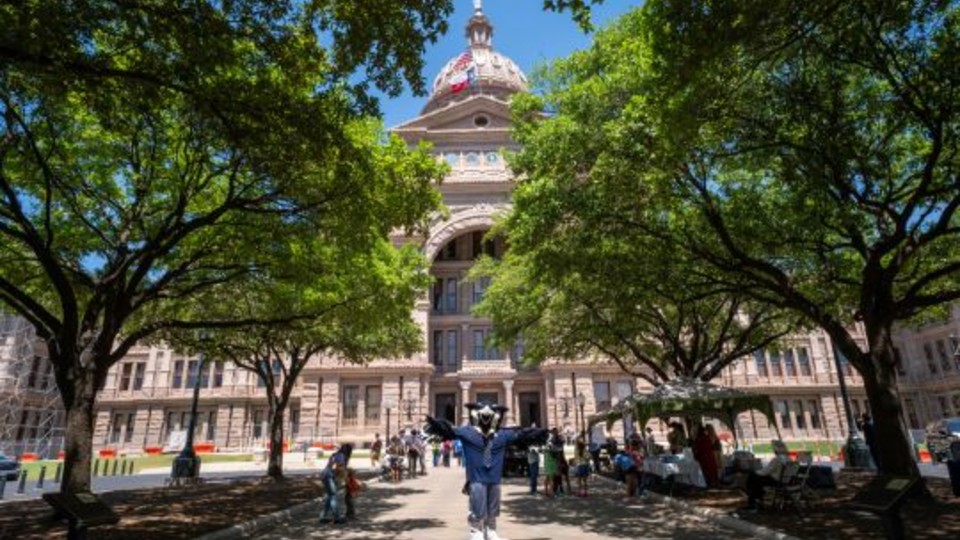
University advocates for landmark bills and hosts inaugural Rice Day at the Capitol

The Texas 89th Legislative Session, which adjourned June 2, marked a milestone for Rice University’s government relations efforts as the university played a vital role in advancing key legislative priorities that support research, student health and higher education opportunities in the state. In addition to making headway on major bills, Rice organized its first-ever Rice Day at the Capitol, a historic gathering that brought students, faculty and leadership face-to-face with state lawmakers.
Rice’s presence in Austin was felt throughout the 140-day session, which saw more than 9,000 bills filed and nearly 1,200 signed into law. Through its collaboration with Cornerstone Government Affairs and strategic advocacy from university leadership — including two visits from President Reginald DesRoches — Rice helped shape outcomes on high-impact legislation that could benefit not only the university but also the broader Texas research and education community.
“This session demonstrated what’s possible when higher education, innovation and advocacy work in lockstep,” said Joel Resendez, director of state government relations. “Our engagement this year laid the groundwork for long-term partnerships that will expand opportunities for Rice and for Texas. It was exciting to see the enthusiasm and momentum behind our priorities.”
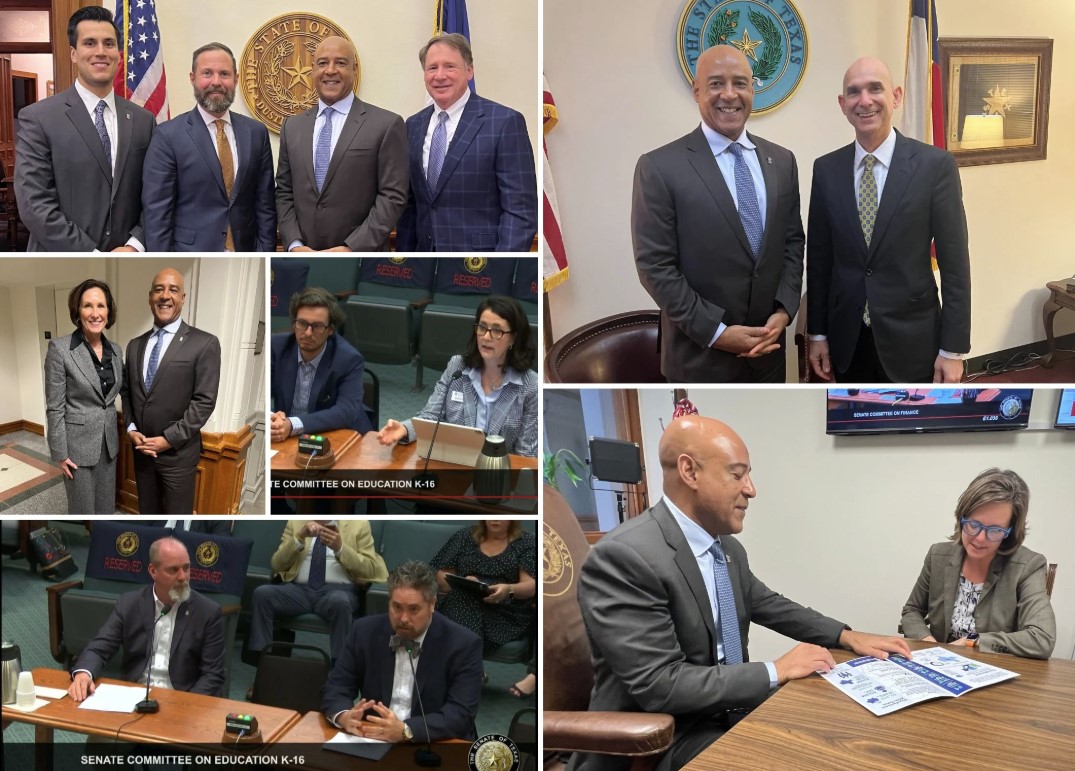
Advancing brain health
Rice played a leading role in the passage of Senate Bill 5, which establishes the Dementia Prevention and Research Institute of Texas (DPRIT) — a bold initiative designed to accelerate discoveries in brain health. The institute, funded with an initial $3 billion allocation, will support research on Alzheimer’s, Parkinson’s and related neurodegenerative diseases.
Rice’s involvement included direct engagement with legislative stakeholders and coalition-building alongside fellow universities and medical institutions. Harris Eyre, the Harry Z. Yan and Weiman Gao Senior Fellow in Brain Health at Rice’s Baker Institute for Public Policy, worked closely with the lieutenant governor’s office to define the initiative’s scope. DesRoches advocated for the proposal in meetings with Speaker Dustin Burrows, R-Lubbock, and Rep. Greg Bonnen, R-Friendswood, chairman of the House Appropriations Committee, emphasizing Rice’s commitment to addressing one of the most pressing health challenges of our time. Also, DesRoches will have the opportunity to appoint a member of the DPRIT higher education advisory committee to advise on issues and opportunities involving research on neurodegenerative diseases.
Lowering health care costs for students
Rice also successfully backed Senate Bill 1409, which allows Texas universities to self-fund student health insurance plans — a move expected to increase plan flexibility and reduce costs for both students and institutions. DesRoches helped advance the bill by meeting with its legislative champions, Rep. Ann Johnson, D-Houston, and Sen. Tan Parker, R-Flower Mound, in Austin. Elaine Britt, Rice’s executive director of human resources operations, testified in both Senate and House committees, sharing insights from Rice’s health care planning experience and underscoring the benefits of this change for students.
Laying the foundation for future research investments
Another major priority was Senate Bill 1032, which sought to expand eligibility for the Governor’s University Research Initiative (GURI) to include private institutions like Rice. Michael King, the E.D. Butcher Chair of Bioengineering and a CPRIT Scholar, testified in favor of the bill at the request of Sen. Lois Kolkhorst, R-Brenham, who carried the legislation.
The bill passed both chambers with strong bipartisan support but was ultimately vetoed by Gov. Greg Abbott, who cited the program’s lack of funding this session. Although the veto paused immediate progress, the university remains optimistic about future opportunities should GURI be fully funded in a later session.
Historic first: Rice Day at the Capitol
On April 14, Rice made history by hosting its inaugural Rice Day at the Capitol. More than 50 students, faculty and staff traveled to Austin for a full day of advocacy, education and celebration. The event served as a showcase of the university’s statewide impact in areas ranging from innovation to the arts and sciences.
DesRoches led the Rice delegation in over a dozen meetings with lawmakers and legislative staff, highlighting how the university’s research, public service and education advance Texas’ future. The day also celebrated a special occasion — the 50th anniversaries of four of Rice’s cornerstone schools: the George R. Brown School of Engineering and Computing, Wiess School of Natural Sciences, Jesse H. Jones Graduate School of Business and the Shepherd School of Music. Deans Thomas Killian and Matthew Loden joined the festivities, along with students and faculty who offered a firsthand look at Rice’s dynamic academic community.
Rice Day at the Capitol also strengthened relationships with policymakers and created new pathways for student and faculty engagement in state government. For many participants, it was a firsthand experience of democracy in action — and a powerful reminder of the university’s potential to shape public policy.
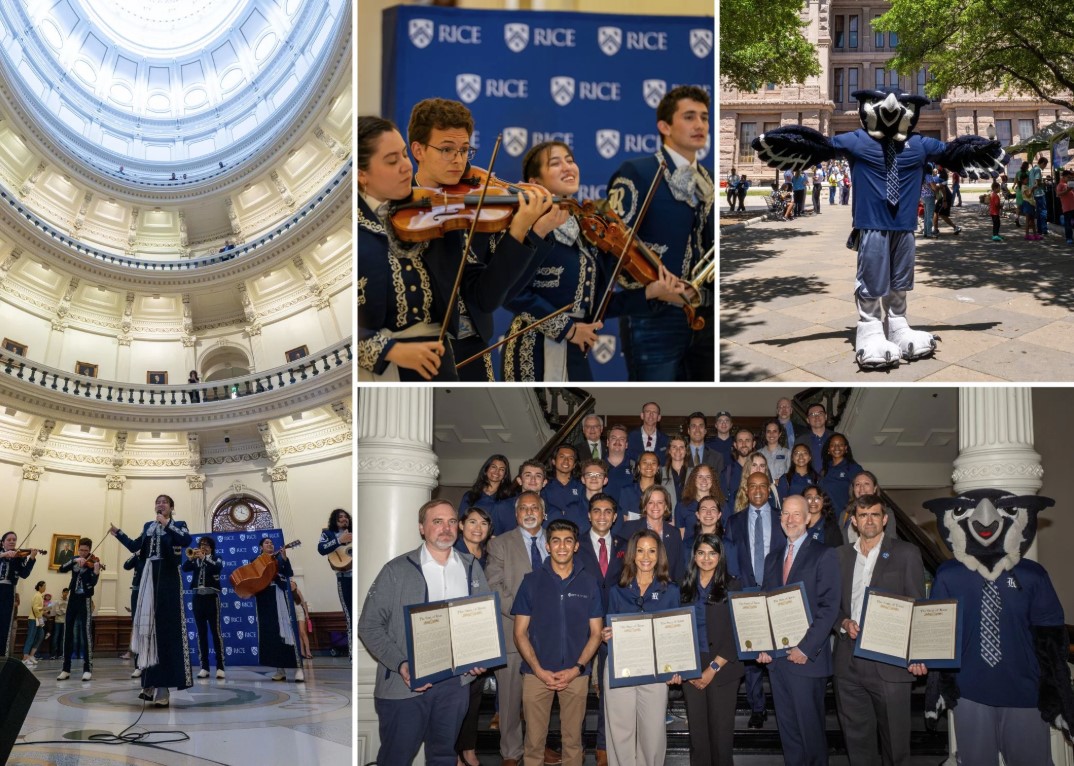
Other noteworthy legislative wins
In addition to its core legislative priorities, Rice engaged on several other bills with significant implications for research, education and institutional operations. Here are some of the highlights:
Research Security Council established – House Bill 127
Creates a statewide council to strengthen research security; Rice secured a provision allowing private tier one institutions to participate, thanks to advocacy by Tam Dao.
Boosting community college transfers – Senate Bill 1786
Ensures transfers from community colleges to Rice count toward community colleges’ state funding formulas, enhancing collaboration with local partners.
Expanded water infrastructure funding – Senate Bill 7
Opens state funding for water reuse and conservation projects; Rice’s Gabriel Collins advised lawmakers on the policy’s long-term implications.
Strengthening Texas’ space ecosystem – House Bill 5246
Broadens the mission of the Texas Space Commission; Rice Space Institute Director David Alexander helped align the bill with Rice’s leadership in space research.
Modernizing NIL regulations – House Bill 126
Allows universities to offer NIL contracts to student-athletes before enrollment; enables Rice to remain competitive under anticipated NCAA changes.
Limiting foreign property interests – Senate Bill 17
Restricts property purchases by certain foreign entities; Rice worked with legislators to mitigate risks to institutional operations and academic community.
Foreign language credit policy refined – Senate Bill 2431
Requires foreign language credits for study abroad programs; Rice successfully advocated for the exemption of private universities from this requirement.
Rice’s growing presence in Austin signals a new era of engagement with state leaders. The university’s focus on collaboration, research excellence and student well-being resonated with lawmakers and set the stage for continued impact in future sessions.
“Our efforts this session were not only about passing legislation — they were about building trust, demonstrating value and reinforcing Rice’s role as a top-tier institution committed to Texas’ future,” Resendez said. “We’re excited to continue this work and expand our influence in the sessions to come.”
You May Also Like

Rice University’s Jesse H. Jones Graduate School of Business today announced the launch of its Graduate Certificate in Healthcare Management program, a 10-month, credit-bearing professional credential designed for current and aspiring leaders seeking deep expertise in the business of healthcare.
MBA 101: What Is a Master of Business Administration?
Here’s your guide to what an MBA is, how long it takes, what you’ll learn and how it can transform your career — no matter your industry.
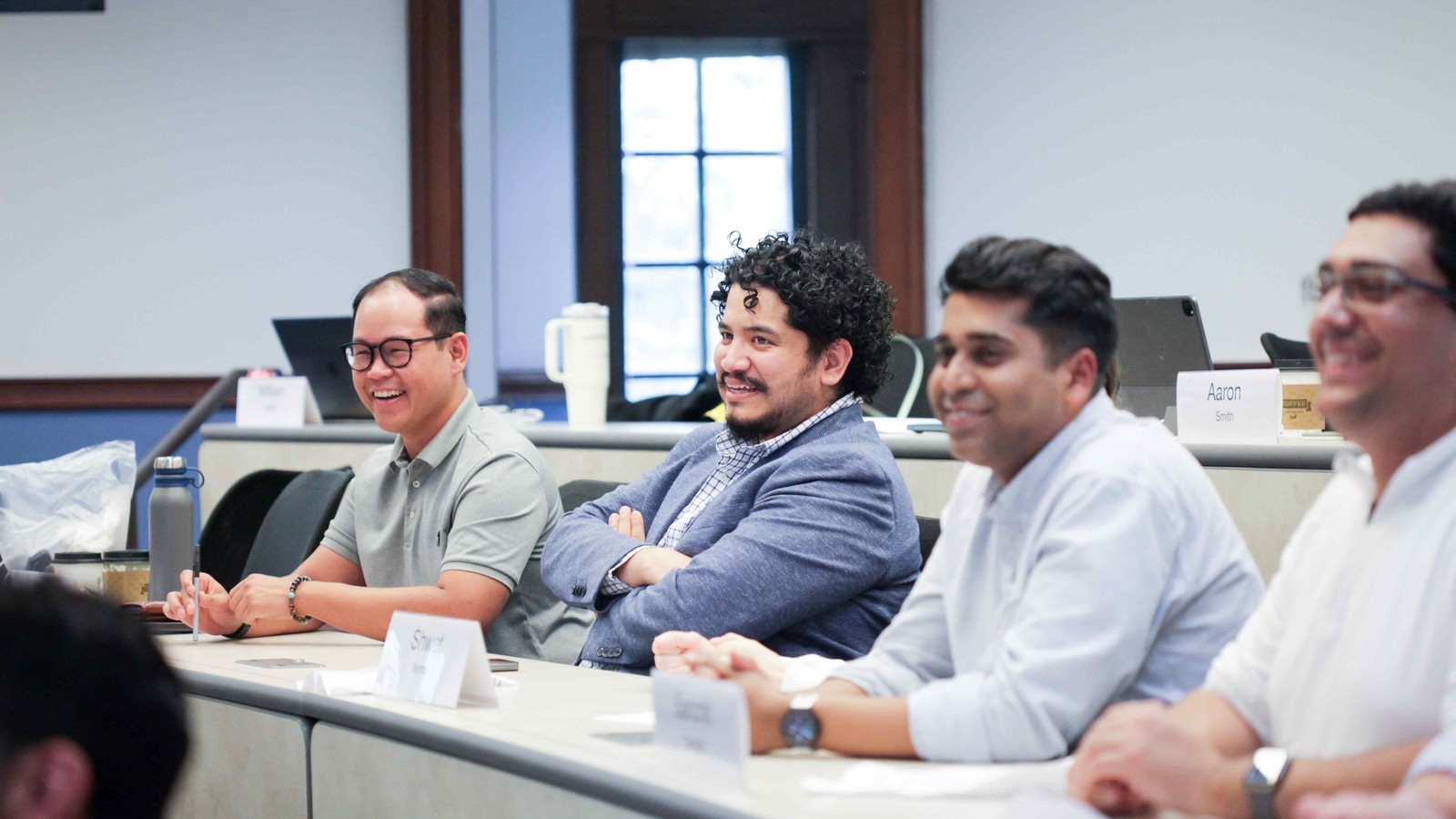
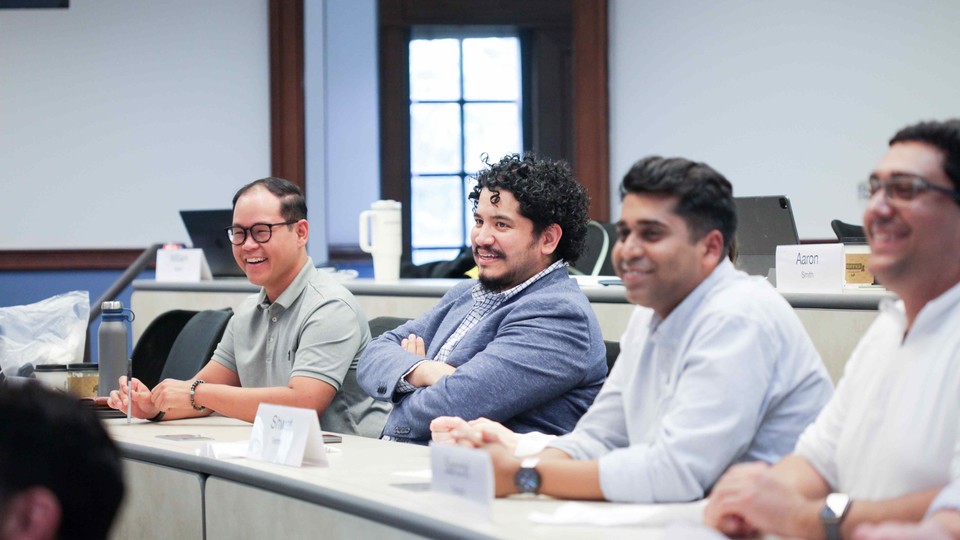
Here’s your guide to what an MBA is, how long it takes, what you’ll learn and how it can transform your career — no matter your industry.
Thinking about earning your MBA but not sure where to start? You’re not alone. Whether you’re just a few years into your career or have been considering a pivot for some time, understanding what an MBA is — and what it can do for you — will give you the confidence to make your next move.
What Is an MBA?
An MBA, or Master of Business Administration, is a graduate degree designed to build leadership, strategic thinking and business management skills. It’s one of the most recognized and flexible degrees in the world — opening doors in consulting, finance, energy and beyond.
Rice University's Jones Graduate School of Business (Rice Business) is accredited by the Association to Advance Collegiate Schools of Business (AACSB), a distinction held by only the top business schools around the world. It’s a sign of academic excellence, high-quality teaching and a commitment to preparing you for real-world success.
Rice MBA programs are also STEM-certified, meaning students benefit from a curriculum that champions cutting-edge technology, leading research and insights. No matter your industry or function, you’ll graduate ready to tackle the most pressing real-world challenges.
Interested in Rice Business?
Why Get an MBA?
There’s no one reason to pursue an MBA, and that’s the beauty of it. At Rice Business, some students are looking to advance in their current industry, while others are ready to pivot to a new one. Many are drawn by the chance to grow their professional network and gain leadership skills.
Some common reasons to get an MBA include:
- Advancing to senior leadership roles
- Switching industries or job functions
- Starting or scaling a business
- Growing your professional network
- Increasing earning potential
What Do You Learn in an MBA Program?
MBA programs are designed to give you a well-rounded understanding of how businesses work — and how to lead within them. The Rice MBA curriculum covers core areas like:
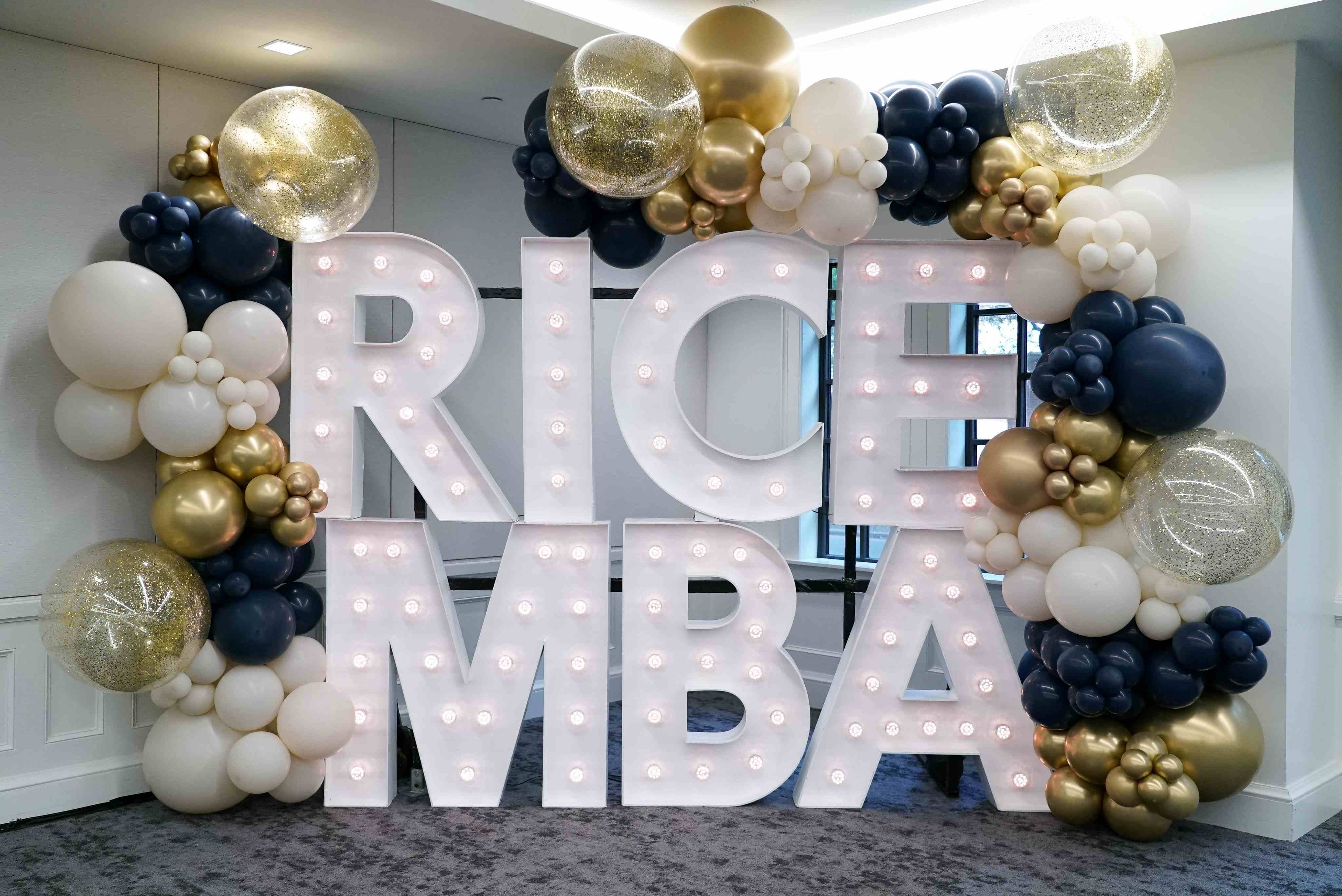
- Finance
- Accounting
- Marketing
- Strategy
- Operations
- Organizational behavior
But that’s just the beginning. For example, MBA students at Rice Business can choose from 100+ electives or 10+ specializations to dive deeper into their interests in areas like entrepreneurship, energy, healthcare and more, depending on their schedule availability.
As a Rice MBA, you’ll also gain real-world experience through case studies and consulting projects like the Global Field Experience — plus personal support through leadership coaching and career services.
What does an MBA schedule look like?
The MBA landscape is broad — from fast, low-cost one-year programs to high-end two-year options. But not all MBA programs are alike. AACSB accreditation, faculty expertise, alumni networks and employer connections matter the most when it comes to long-term value.
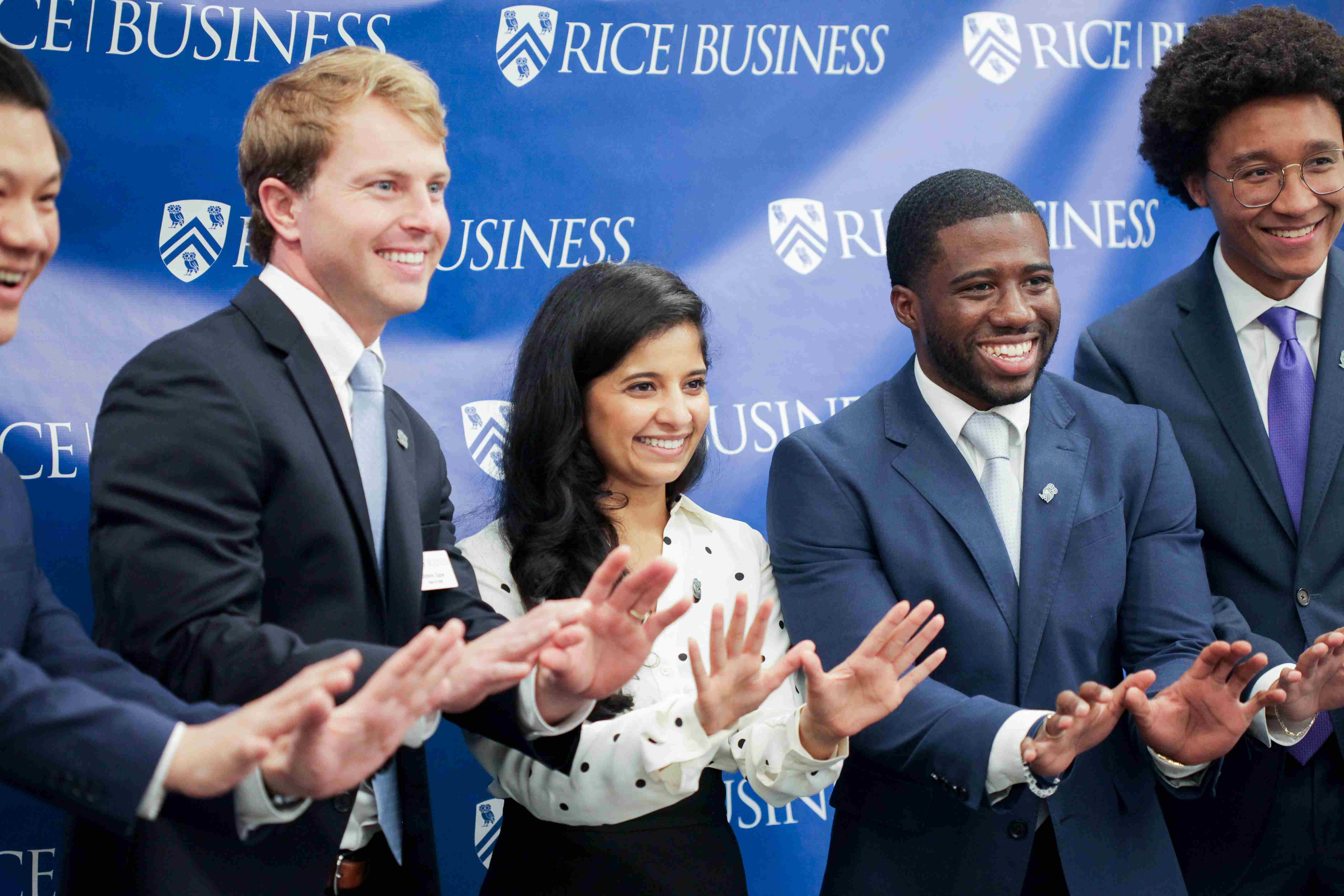
At Rice Business, our two-year programs combine academic rigor, real-world experience and individualized support to help you build lasting value throughout your career — and offer a greater return on investment than one-year programs in the long run.
The Rice Full-Time MBA program offers the most traditional, on-campus learning experience. It’s designed for students who can take a career pause and commit to a fully in-person program with classes Monday thru Thursday.
Rice also offers a variety of MBA programs designed to accommodate just about any schedule, so you can learn without putting life on pause.
Here’s a breakdown of Rice programs specifically designed for working professionals:
- Professional MBA: Built for working professionals seeking evening or weekend classes
- Hybrid MBA: Our part-time program offering a combination of online classes and monthly on-campus opportunities
- Executive MBA: Tailored for leaders with an average 15+ years of experience who are ready to grow even further
- Online MBA: Offers maximum flexibility through virtual coursework and select in-person experiences
Curious which program is right for you? Take our quiz and find the MBA that fits your life:
Is an MBA Worth It?
Aside from fueling your confidence and connecting you with a powerful network of peers, mentors and industry leaders, an MBA offers strong financial returns through career growth opportunities.
Professor James Weston, Harmon Whittington Professor of Finance, explains just how great the returns on a Rice MBA can be:
Rice Business offers some of the highest-ranked programs, including the #4 Best Online MBA (Princeton Review, 2023-2024) program in the country. The best part? You’ll have access to the same high-quality curriculum, expert faculty and career support — no matter your program.
Explore our Rice MBA programs to see where a business degree can take you.
You May Also Like
Keep Exploring
Corporate Activism Tends To Follow, Not Lead, Social Change
Companies often avoid using a “collective action frame” in their messaging until after a controversial issue is legally and politically settled.


Based on research by Alessandro Piazza (Rice Business), Sung Hun Chung (Texas A&M) and Kate Odziemkowska (Toronto)
Key findings:
- Corporate messaging strategies are significantly influenced by stakeholder ideology, industry conservatism, and public opinion.
- After same-sex marriage became law, companies were 6% more likely to use language that called for broader societal change.
- Firms based in highly liberal states used this kind of outward-facing, change-oriented messaging 18% more than those in highly conservative states.
For years, corporate activism has been positioned as a leading force in shaping social and political conversations — with executives taking public stands on issues like same-sex marriage, gun control and climate change.
But new research in the Academy of Management Journal suggests that corporate activism isn’t as bold as it may seem. Companies typically speak out only after public opinion has shifted or legal decisions have been made.
Using a large dataset of external communications from Fortune 500 companies, researchers Alessandro Piazza (Rice Business), Sung Hun (Brian) Chung (Texas A&M University) and Kate Odziemkowska (University of Toronto) show that firms often adjust their messaging only after once-divisive issues have been resolved through law or broad public agreement.
“It’s not that companies don’t care,” says Piazza, associate professor of strategic management. “But they rarely lead the charge. Instead, they wait for the dust to settle — then pick up the banner. In many cases, corporate activism is a misnomer.”
When the Dust Settles, the Framing Shifts
For their research context, Piazza and his colleagues analyzed a wide-scale dataset of executive tweets and press releases spanning 1999 to 2019. They tracked how major companies addressed LGBTQ rights— with a focus on when and how they responded as same-sex marriage was gradually legalized across the U.S.
What they found is that companies were more likely to use something called a “collective action” frame — messaging that encourages society to unite, take a stand, or drive change — only after a clear legal or social resolution emerged. Before that point, corporate messaging typically used an “individual action” frame to communicate firm values, such as workplace diversity or the business case for inclusion.
Collective action language tends to be future-oriented and invoke institutional change, using words like “bill,” “law,” “civil rights,” “march,” “social,” “allies,” “care” and “protect.” By contrast, the individual action frame characterizes LGBTQ issues in terms of workplace or business experience that do not signify injustice: for example, “corporate equality,” “achieve,” “workplace” and “rating.”
“It’s not that companies don’t care,” says Piazza, associate professor of strategic management. “But they rarely lead the charge. Instead, they wait for the dust to settle — then pick up the banner. In many cases, corporate activism is a misnomer.”
Notably, after the Supreme Court’s 2015 decision legalizing same-sex marriage, collective action messaging around LGBTQ+ issues rose by 6% — a meaningful jump.
But not every company made the same shift; it largely depended on who was in charge and where they were based. Very liberal executives were 18% more likely than very conservative executives to use collective action language. Likewise, companies headquartered in liberal states were 18% more likely to use a collective action frame than those in conservative ones.
What This Means for Corporate Activism
The study offers a more nuanced — and in some ways sobering — view of corporate activism.
The findings cast doubt on the idea that big companies are leading the way on social change. The data suggest they are not out in front; rather, they are waiting for the political and cultural winds to shift, then stepping in once it is safer to speak.
“Corporations are risk-averse entities,” Piazza says. “They tend to move once institutional uncertainty has subsided and the risk of backlash is minimized.”
That doesn’t mean smaller firms or niche brands behave the same way. The study focuses exclusively on Fortune 500 companies, which may be uniquely constrained by broad stakeholder demands and reputational risk. Future research could explore how smaller firms or those targeting specific audiences approach contentious issues differently — and whether their framing strategies yield different outcomes.
Is It Still Activism If You Wait Until It's Safe?
A few questions arise from the research. For one, is it possible to “thread the needle” between opposing audiences? Piazza and his colleagues suggest that both individual action and collective action frames can serve to align the company with specific social groups. But blending these frames may end up diluting the message altogether.
And what happens when the arc of change bends the other way? Because the study focuses on a progressive social shift (i.e., marriage equality), it raises questions about how companies behave when the political tide moves in a more conservative direction. Do companies still wait for public consensus before speaking out? Or do some settlements, particularly those that go against majority opinion, invite deeper corporate silence?
The study shows just how closely corporate decisions follow the legal and political environment around them. It also raises a core question: Can it really be called “corporate activism” if companies only call for change and urge action after the toughest parts of the social debate are over?
Written by Seb Murray
Chung, Odziemkowska, and Piazza (2025). “Threading the Needle of Corporate Activism: How Firms Frame Their Stances on Polarizing Social Issues,” Academy of Management Journal.
Never Miss A Story
You May Also Like
Keep Exploring
2025 Best & Brightest Online MBA: Andria Monique Pourkarimi
"I chose the Online MBA because I needed the flexibility. I have a mortgage to pay and couldn’t afford to step away from work. Rice Business’ program gave me access to a top-tier education while allowing me to grow my career and remain financially independent."
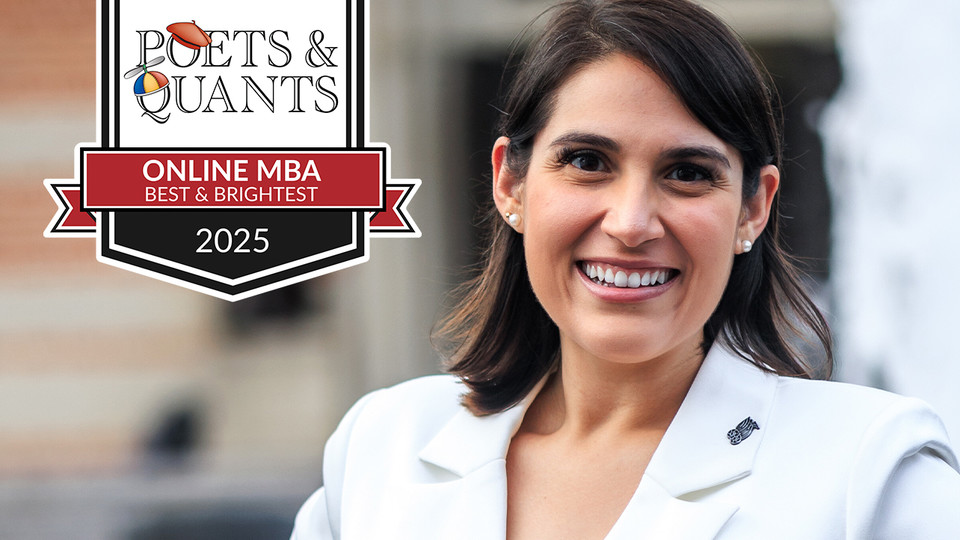
Is NPS Really BS? Another Study Suggests So
Rice Business professor Vikas Mittal says that senior executives need to take greater responsibility in regards to the findings of business research rather than rushing to oversimplified conclusions.

